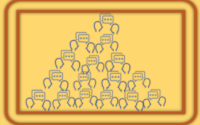
K-12 online learning journal articles: trends from two decades of scholarship
I this study, we examined the research literature in the field of K- 12 online learning to identify the leading scholars, journals, top cited articles, research methods, and topics in this field of inquiry. Our research process involved collecting a corpus of journal arti- cles focused on K-12 online and distance learning; categorizing these articles […]
















